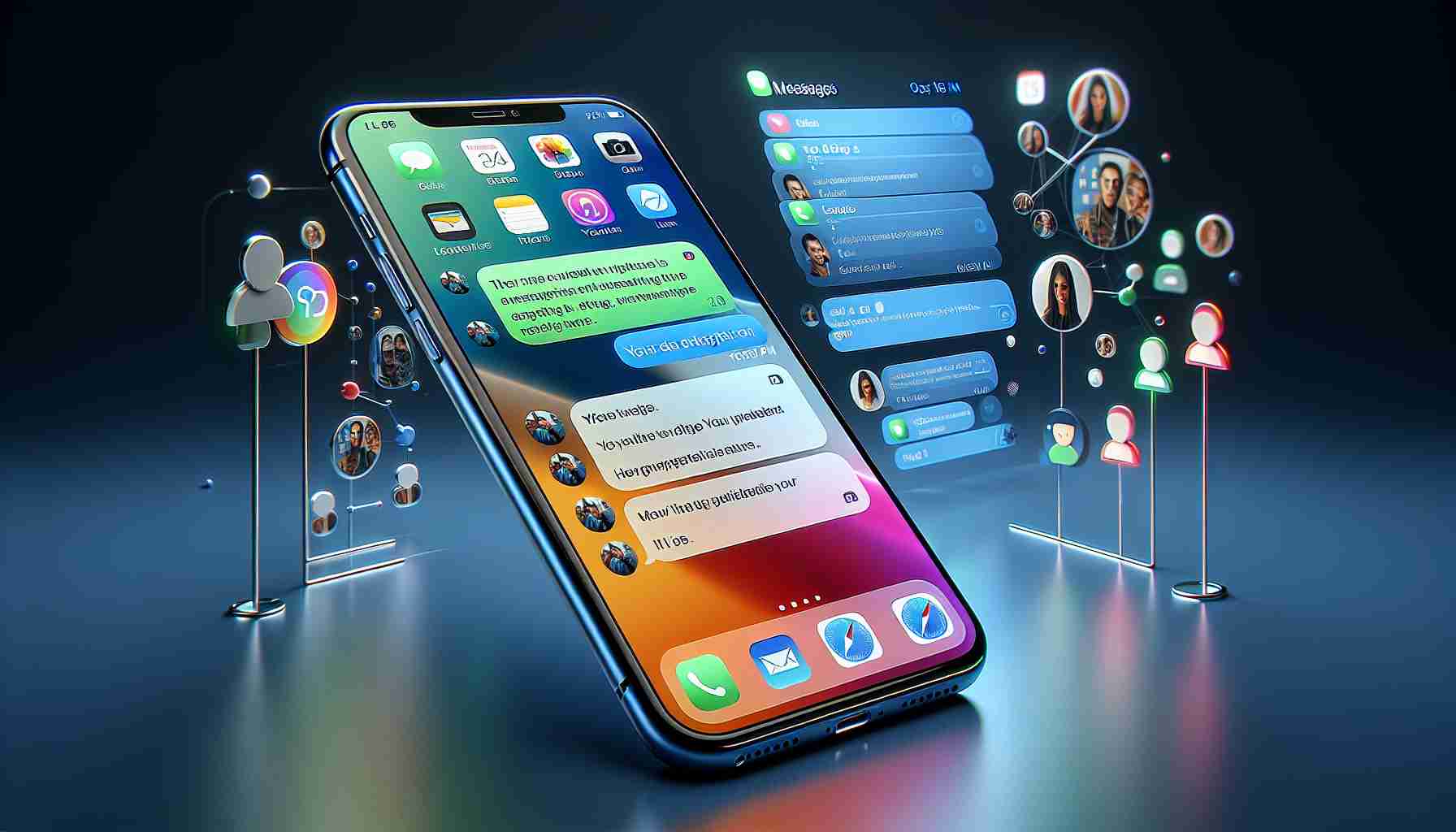Apple is on the verge of reshaping iPhone communication with the upcoming iOS 18 update, which promises to be a monumental leap forward in terms of functionality and user experience. At the heart of this software revolution, the introduction of Rich Communication Services (RCS) stands out as a particularly exciting development. RCS is seen as the next generation of text messaging, envisioned to succeed the antiquated SMS protocol.
Originally developed by Google, RCS brings various advanced messaging features to the table. These include the ability to send high-definition media, read receipts, and better audio message quality. The Android user base has gradually adopted this standard, enjoying an enhanced messaging landscape across every device using Google Messages.
Historically, Apple has been hesitant to adopt RCS, maintaining its own iMessage system as the superior messaging platform for communication between iPhone users. However, the tide is changing as external pressures and evolving user demands have finally nudged Apple towards incorporating RCS within its ecosystem, a move that will revolutionize texting between iPhone and Android smartphones.
Despite a somewhat muted reveal of this feature during the World Wide Developers Conference (WWDC), keen observers have earmarked RCS as a game-changer for iOS 18. Apple’s website provides a glimpse into a future where messaging across different operating systems becomes seamless, with guarantees of read receipts and presumably improved quality of photo and audio sharing. The visual distinction of messaging via RCS will be maintained, as indicated by the familiar green text bubbles.
While RCS’s full potential within the iOS context is yet to be disclosed, the anticipation for high-fidelity communication with non-iPhone users is palpable. Previously, iPhone users often relied on third-party apps for consistent messaging with Android contacts. RCS integration into iOS 18 is poised to streamline this process, centralizing all messages within a single app.
Apple users are eagerly looking forward to the fall release of iOS 18, where they hope to see the coveted “RCS” indicator in their Messages app, signalling a new era in cross-platform communication.
When considering the introduction of Rich Communication Services (RCS) into iOS devices with the upcoming iOS 18 update, it is essential to recognize the implications and associated questions that arise from such a development. Here are some key questions and relevant information related to the topic:
1. Will RCS on iOS be interoperable with RCS on Android?
Apple’s integration of RCS seeks to achieve seamless messaging between iOS and Android users. This interoperability means that improved features such as read receipts and high-resolution media sharing should work across both platforms.
2. What does the adoption of RCS mean for iMessage and its exclusive features?
While RCS improves communication with non-iPhone users, iMessage’s exclusive features—such as full-resolution photo and video sharing, Animoji, and encrypted messages—will likely remain exclusive to communication between Apple devices.
3. How will privacy and security be handled with RCS?
RCS historically has not offered the same level of encryption as iMessage. Apple is expected to implement RCS without compromising its stance on user privacy and security. However, details on how they will achieve this are still to be seen.
The introduction of RCS to iOS comes with key challenges and controversies:
– Achieving parity with iMessage’s encryption standards without compromising the open nature of RCS could be a technical and policy challenge.
– There may be concerns about whether Apple will fully commit to RCS or if they will maintain certain exclusive features for iMessage to keep its ecosystem advantages.
– Compatibility and implementation across different carriers and Android devices can be fragmented, which could present hurdles for a consistent RCS experience.
The advantages of RCS on iOS include:
– Improved functionality over SMS, with features like typing indicators, read receipts, and better group chats.
– Enhanced media sharing capabilities with higher quality audio and images.
– Elimination of the need for third-party messaging apps for cross-platform communication, simplifying user experience.
Conversely, the disadvantages could potentially be:
– Privacy concerns if RCS does not include end-to-end encryption by default.
– Possible fragmentation due to carrier and manufacturer differences, leading to inconsistent user experiences.
– Resistance from users accustomed to the exclusivity of iMessage.
For users interested in learning more about upcoming iOS updates, they can visit Apple’s official website. It’s also valuable to stay informed through reliable tech news sources and Apple’s official announcements, particularly around the time of the WWDC where new features are traditionally revealed.
